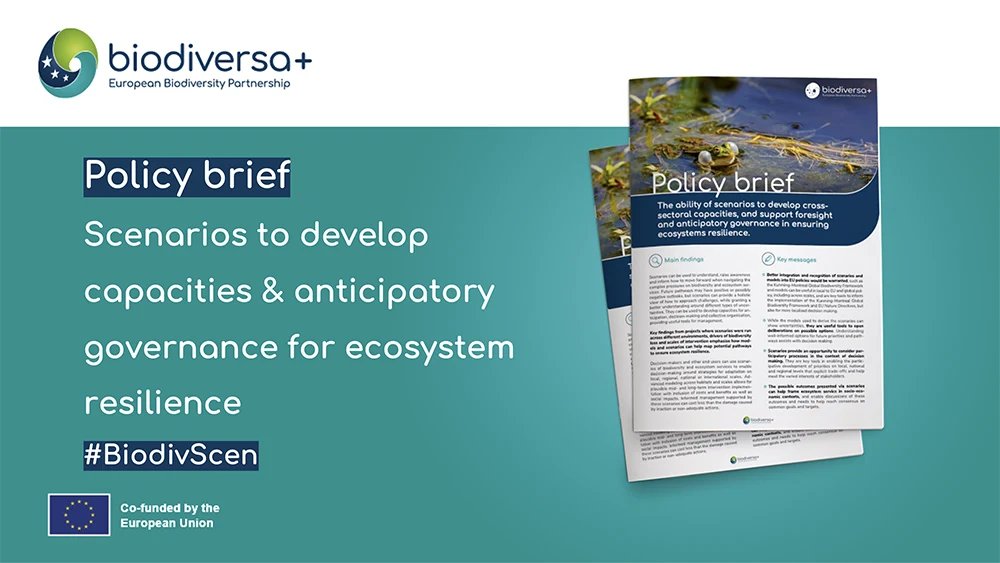The policy brief “The ability of scenarios to develop cross-sectoral capacities and support foresight and anticipatory governance in ensuring ecosystem resilience” offers fresh insights on the crucial role of scenarios in addressing biodiversity challenges and ecosystem services. It recognises scenarios as indispensable tools to comprehend and navigate the complex pressures on biodiversity and ecosystem services. By offering holistic perspectives on potential pathways, scenarios empower decision-makers and stakeholders to better understand uncertainties. They also enable the development of essential capacities for anticipation, informed decision-making, and collective organisation, providing indispensable tools for effective ecosystem management.
The policy brief draws attention to key findings from projects that have applied scenarios across various environments, drivers of biodiversity loss, and intervention scales. Advanced modelling techniques enable the implementation of plausible mid- and long-term interventions, factoring in costs, benefits, and social impacts. Informed management, supported by these scenarios, can ultimately be more cost-effective than the consequences of inaction.
The policy brief advocates for better integration and recognition of scenarios and models into EU policies, such as the Kunming-Montreal Global Biodiversity Framework. It emphasises the utility of models in shaping global and local policies and highlights their significance in implementing global biodiversity frameworks and EU Nature Directives.
Dive into this policy brief to discover how scenarios can serve as powerful tools for building ecosystem resilience and guiding informed decision-making.
Curious about the BiodivScen projects? Discover BiodivScen here!
This policy brief is based on the results of five BiodivScen projects: InvasiBES, AlienScenarios, Wild Health, Biodiv-Support and LimnoScenES.




